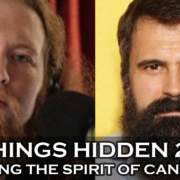Celebrity – The Cornerstone of Modern America
Told the devil that I’m going on a strike
Told the devil when I see him, on sight
I’ve been working for you my whole life
Told the devil that I’m going on a strike
I’ve been working for you my whole life—Kanye West, ‘Hands On’
In the 1991 film ‘The Doors,’ Oliver Stone treats singer Jim Morrison as a modern-day incarnation of the ancient Greek deity Dionysus. It is apt that Stone treats the story of Morrison as a modern-day myth rather than a documentary-style factual narrative. After all, one of America’s biggest cultural exports (if not the greatest) and modern-day mythmaking consists of the celebrity.
Why export celebrity? Why not let it be confined within its borders? Jim Morrison, played by Val Kilmer, himself provides the answer in the film when he quotes Nietzsche: “All great things must first wear terrifying and monstrous masks in order to inscribe themselves on the hearts of humanity.” The celebrity, in all certainty, is a mask or, more accurately, it is a persona that is meant to be a model for worship and emulation.
Various celebrities, whether they be rock stars, movie stars, politicians, or even Church personalities, embody various types of personas. In Jungian psychoanalysis they are archetypes. In pro-wrestling they are ‘gimmicks.’ Dionysus is one such ancient gimmick; it has scraped through the inquisitions and witch hunts right into our modern-day embrace as the primary form of stardom.
Stone, very clearly and intentionally, portrays Jim Morrison as Dionysus with Morrison being intoxicated and promiscuous in almost the entirety of the movie’s duration. The rock and roll star was the tip of the thrust that was the 1960s sexual revolution—an era dominated by Vietnam war newreels and footages of naked, intoxicated hippies copulating en masse at events like New York’s ‘Woodstock’ and San Francisco’s ‘Summer of Love.’
The juxtaposition of the Vietnam war and hippie culture is to be seen as the break from something that should have been a common occurrence in ancient times. Violence and sex have always been used interchangeably in mythological narratives due to the proximity between taboo and death; an example is Zeus’ rape of Semele. During the 60s, however, the hippies raged against the Vietnam war, and not only did it rebel against the war but it did so as the first-ever extra-Christian attempt at protesting against war as a mass human sacrifice.
The hippie movement should be seen as the rise of a new adolescent religion that seeks to resurrect paganism without the element of human sacrifice. Anthropologist René Girard spoke of this naivety and argues that such an undertaking is bound to fail.
The indefinite multiplication of primitive and pagan gods look like an amiable fantasy to many in our time, something created for no serious reason—playful, we might say, or rather “ludic,” since the word is à la mode. It is a playful fantasy of which an overly serious monotheism, not playful at all, tries to deprive us. In reality, however, the primitive and pagan gods are not playful; they are mournful and destructive.
~ Girard, ‘I See Satan Fall Like Lightning’
The reason hippie culture fails (and has failed historically) is because it deifies celebrities as secular ‘icons.’ Celebrities such as Jim Morrison are not only the answer to Christian iconography but also cultural and temporal monarchs fattened for sacrifice. The reverie that exists around these icons is unmistakable; who wants to see a fat and dead Elvis Presley on the toilet seat or a vomit soaked Anna Nicole Smith dead in her bed? We’d rather remember these icons for their cultural and political boldness: the speech at the concert or the awards show, the endorsing of political candidates, the ‘speaking out’ against bigotry, the righteous twitter rants, etc.
One reason why Oliver Stone’s The Doors is impeccable is because it blurs the line between classical mythology and celebrity biography. In one scene, Morrison sings about killing his father and having sex with his mother, a scandalous nod to Oedipus—one that causes instant outrage but also hysterical adoration. In another scene, Morrison’s girlfriend Patricia Kennealy says that the crowd outside are calling for him and Morrison replies, “They don’t want me, they want my death… ripped to pieces.”
Patricia Kennealy earlier hints to the five-day riot carnival that witches would undertake in medieval times. During these five days, the witches would wander the hills, looting and devouring themselves and wild animals whilst “looking for Dionysus” whom they would “rip to pieces.” But in those days, the Dionysus—the victim—whom they would murder were often disfigured or marginalized outcasts. Today, this cannibalistic phenomenon has rid itself of coercion and, therefore, the victim has become willing and submissive to the ritual.
In The Doors, this voluntary sacrifice of Jim Morrison is alluded to in the movie’s ending. Morrison quietly says goodbye to his bandmates and one of them says he “made music with Dionysus himself.” A few minutes later, Morrison is shown dead in his bathtub. With his death, Morrison cements himself as the modern-day version of the dying and resurrecting god of old. It is perhaps in irony that the music playing in the background is the climactic chorus of LA Woman.
In secular imagination, the early death of celebrities is a guarantor of instant deification. Artists like Jim Morrison are today’s gods of a culture infatuated by stardom and, therefore, are models considered worthy of emulation. What is the ‘x-factor’ that talent hunters seek in aspiring artists? Why is this x-factor so ambiguous in its definition? It is because this unknown quality is made known in the narratives of ancient mythology. If one is puzzled by this line of reasoning then one should look at the current controversial Netflix feature Cuties; by doing so one can conclude how the emulation of Dionysus affects future generations.
The gospels, especially the Passion narratives, unearth the ancient human sacrificial ritual and robs it of its glimmer. But whether it will do so in modern times, where the victim and oppressors mutually carry out the sacrifice, we shall try to predict. In America and the rest of western civilization, where the mantra of ‘do as thou wilt’ remains more or less a primary force of how freedom is to be dictated, how can the Gospel, as it is perceived in the western psyche, defeat the sacrificial mechanism?
The issue becomes even more complex when we consider how, with the advent of social media, every single individual can now claim his/her very own Dionysian pedestal and, ultimately, the right to be sacrificed. With this phase of evolution, the American cornerstone has become a global cornerstone. Certainly, the Gospel can provide the shock treatment that might unravel this modern myth too.
Because of the contagious nature of imitation, we are seeing Christ’s shock treatment as an inversion of the Dionysian myth. The sheer ridiculousness of twitter culture has ensured that the gap between celebrities and their fans is non-existent. In a state of growing undifferentiation, celebrities now argue with fans online all the time. Why has this occurred and where is this heading? We must remember that the crucifixion of Christ has annihilated the pagan art of mythmaking, i.e. deifying the victims of sacred murder rituals.
The cross of Calvary has injected a sense of parody in the myth of Dionysus. Whereas the ancient Greek deity was a sacralization of drunkenness and chaos, the sacred drunkard today is ridiculed and mocked by a thousand other aspiring gods of drunkenness. A few like Kanye West have figured this out and has, remarkably, taken the path of inverting the Dionysian spirit of stardom through making a mockery out of the music industry. The celebrity is turning into the holy fool.
If society strives to “do as thou wilt,” Christ reverses that to mean “do what I do,” and He does so through making a mockery of pagan mythology just as He had done during the reign of Tiberius Caesar. Will there be a Christian end to the story of Dionysus? Only time will tell.










Leave a Reply
Want to join the discussion?Feel free to contribute!